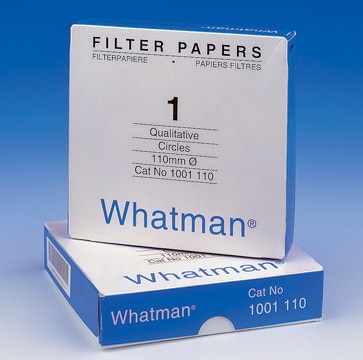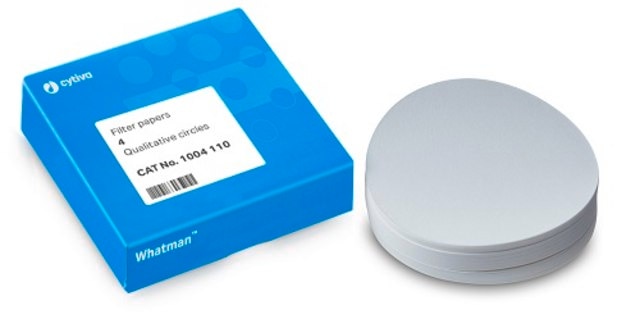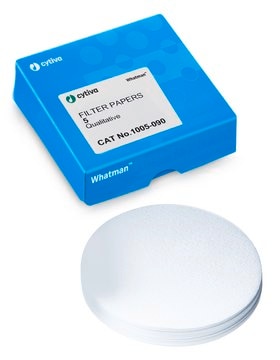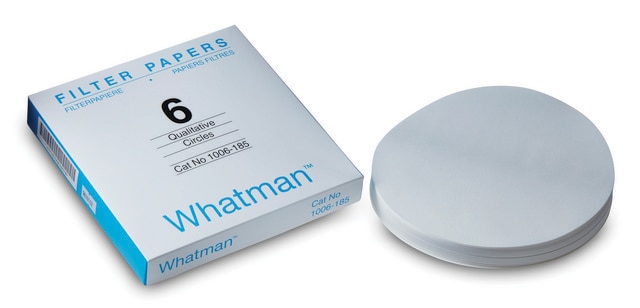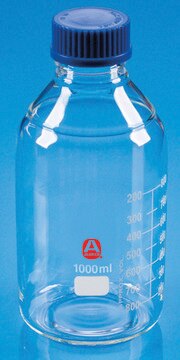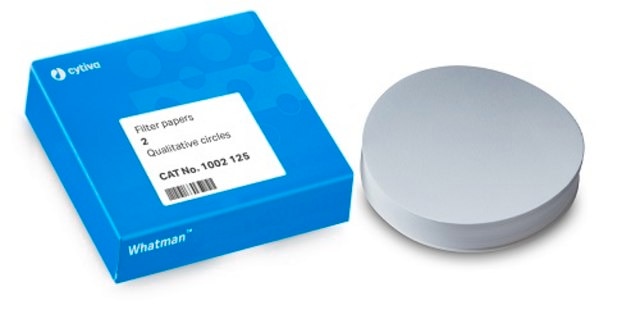WHA1005090
Whatman® qualitative filter paper, Grade 5
circles, diam. 90 mm, pack of 100
Synonym(s):
Whatman filter, Whatman filters, Whatman paper, Z240680, filter paper, filter papers, paper filter
About This Item
Recommended Products
material
cellulose filters
circles
packaging
pack of 100
manufacturer/tradename
Whatman 1005-090
Whatman Article No. 28414040 (US reference)
parameter
0.40 psi wet burst
1420 sec/100 mL speed (Herzberg)
diam.
90 mm
thickness
200 μm
ash
≤0.06%
pore size
2.5 μm (Particle retention)
basis weight
100 g/m2
Looking for similar products? Visit Product Comparison Guide
Related Categories
General description
Grade 5: 2.5 μm, (slow filter paper)
The maximum degree of fine particle filtration in the qualitative range. Capable of retaining the fine precipitates encountered in chemical analysis. Slow flow rate. Excellent clarifying filter for cloudy suspensions and for water and soil analysis.
Other Notes
Legal Information
Certificates of Analysis (COA)
Search for Certificates of Analysis (COA) by entering the products Lot/Batch Number. Lot and Batch Numbers can be found on a product’s label following the words ‘Lot’ or ‘Batch’.
Already Own This Product?
Find documentation for the products that you have recently purchased in the Document Library.
Customers Also Viewed
Our team of scientists has experience in all areas of research including Life Science, Material Science, Chemical Synthesis, Chromatography, Analytical and many others.
Contact Technical Service